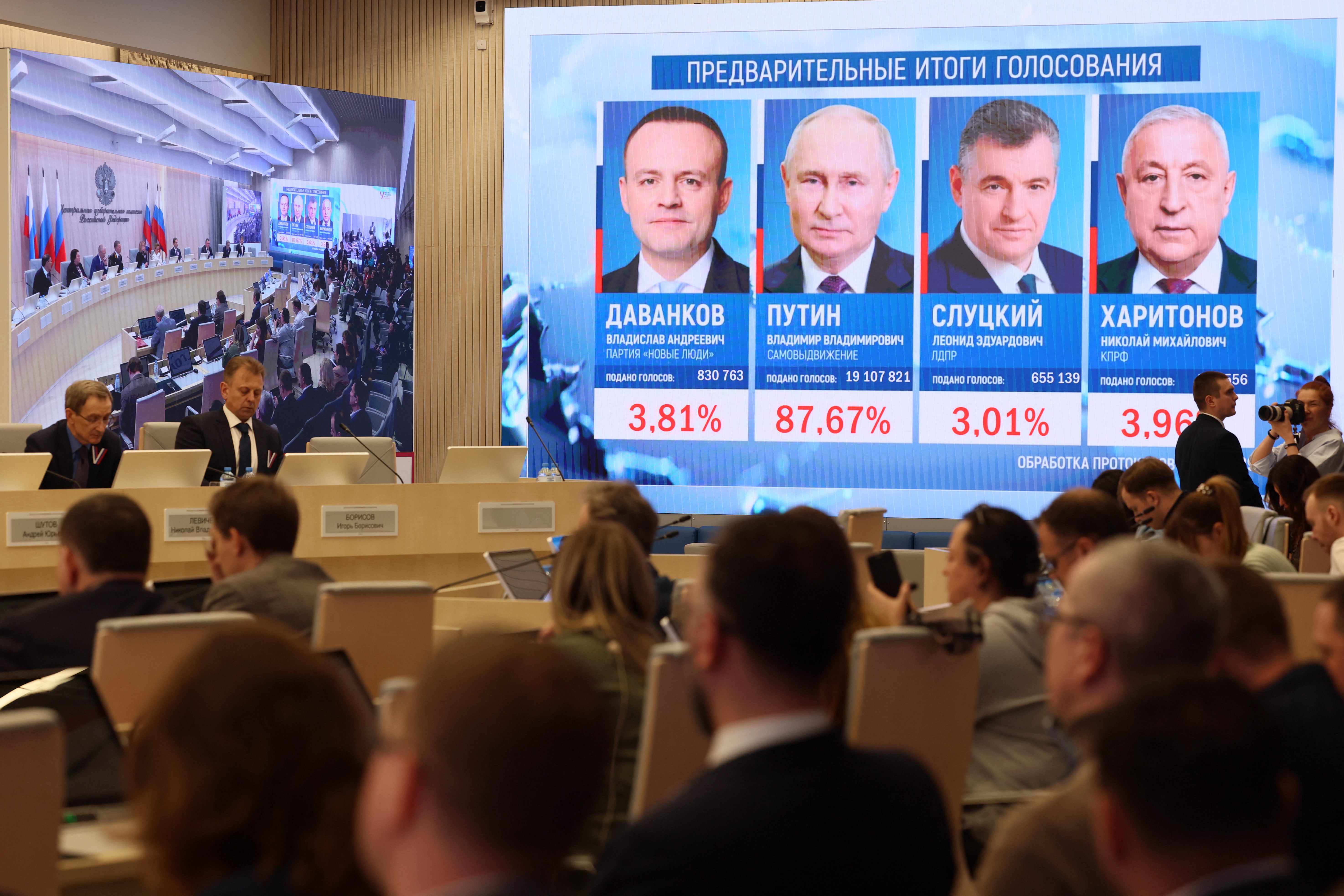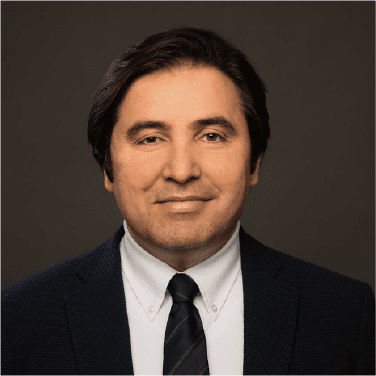1. Over two years into Russia’s full-scale invasion of Ukraine, Russians have just gone to the polls and Ukraine appears set to postpone an election slated for the end of March. In Russia, Putin reportedly spent more than $1 billion on a public relations campaign in the lead-up to the election. What is the significance of these elections for the two states and their ongoing war?
In the Russian election, the winner was a foregone conclusion: incumbent President Vladimir Putin. He ran as an independent candidate, portraying himself as above fractious party politics. In fact, in contemporary Russia, parties are weak and secondary to political figures. In the last presidential election in 2018, Putin received nearly 77% of the votes. This time, he won with 87.8%, according to exit polls. To be clear, Putin probably commands wide support within Russian society. However, it is almost impossible to know how broad his support is based on a tightly controlled election. As such, the election is unlikely to have any impact on the Russian invasion of Ukraine or broader foreign policy.
However, the question of the Ukrainian election might prove to be more impactful on the course of the war. For various reasons, Kyiv is unable or unwilling to hold the election. For one, Ukraine declared martial law after the invasion, which put a halt to the democratic process as elections are prohibited. There seems to be a popular and political consensus in the country about postponing elections until the war is over.
Yet opponents of Western support for Ukraine in places like the United States, particularly in pro-Trump circles in the Republic Party, appear to be utilizing the suspended elections as a pretext for ending military aid to Kyiv. If support from Western countries ceases on this basis, then the fate of the Ukrainian election will technically have a larger impact on the war than Russia’s election, even if the election never takes place.
2. A recent SIPRI report found that the volume of Russian arms exports has declined steeply in recent years, as the war in Ukraine consumes Moscow’s production capacity and supplies. Over the same period, Middle Eastern countries imported the majority of their arms from the United States and Europe. How is this shifting balance in arms sales impacting Russia’s relations with Middle Eastern states?
SIPRI’s new report reveals how great power competition and the invasion of Ukraine are reshaping not only the global security environment but also the major powers’ share in the global arms market. The West’s share (that of the U.S. and Western Europe combined) rose to 72% during 2019–2023, up from 62% in 2014–18. In contrast, Russia’s share experienced a steep decline of 53% in the same period. Saudi Arabia and Qatar rank amongst the top three arms importers worldwide during 2019–2023, with Egypt in the top 10. These countries purchase the vast majority of their arms from the West.
Several factors are key to understanding the significant decline in Russian arms exports. First, the lackluster performance of Russian weaponry in Ukraine has likely affected its attractiveness and dampened the appetite of potential customers, including in the Middle East.
Second, the threat of direct or secondary sanctions has reduced the willingness of many states to engage in defense industry cooperation or trade with Russia by increasing the cost of purchasing Russian weapons. Any country, particularly a middle power, that wants to buy Russian weaponry has to factor in the risk of Western, or secondary, sanctions.
Third, Russia’s military-industrial complex is primarily focused on serving the country’s growing production needs. For instance, Russia’s Black Sea fleet has lost almost one-third of its assets over the past two years. Therefore, instead of exporting, the Russian defense industry will probably be preoccupied with meeting domestic demand.
Finally, the Russian share of the GCC arms market has historically been modest, if not negligible. However, it is important to observe how Russia’s share of traditionally Moscow-friendly countries has changed. For example, Russia remains India’s top arms supplier, accounting for about 36% of imports according to the SIPRI report. However, its overall share in the Indian arms market had declined significantly. Conversely, France increased its foothold in India considerably. If these trends continue, they will bear significant implications for Russian influence and standing in these countries, as defense cooperation creates long-lasting relationships and dependencies.
3. Against the backdrop of Gaza and Ukraine, how has Russia’s regional role and standing in the Middle East changed?
At the outset of Russia’s invasion of Ukraine, there were expectations that the war would negatively impact Russia’s position in the Middle East, which has not come to fruition in any significant way. Moscow still strives to maintain its place and influence in regional geopolitics, while Middle Eastern states remain engaged in a geopolitical balancing act between the Western bloc and Russia.
For years, Moscow has been increasing its footprint in regional security affairs, particularly since establishing a Mediterranean foothold through Syria in 2013 and its subsequent military intervention in Syria’s civil war in 2015. As a result, different types of dependencies and interdependencies between Russia and various regional actors have emerged. This became an important factor of consideration for those regional actors when formulating policy responses to Russia’s invasion of Ukraine. Indeed, Russia facilitated various mediating roles for countries like Türkiye, the UAE, and Saudi Arabia to keep them in a neutral position rather than supporting Western policy.
Another outcome is that the wars in Ukraine and Gaza have brought Russia closer to the Iran-led “axis of resistance.” Although this has been somewhat of a mixed bag given the wars have also stymied the Syrian rapprochement with the Arab world, which Russia supports.
Some also expected that outrage in the Middle East over the West’s double standards in its approach to Gaza and Ukraine would benefit Russia and China in the region. So far, this has not materialized, largely because Moscow’s highly critical rhetoric on Western hypocrisy has not been developed into a credible, alternative policy. To date, Russia’s most concrete step has been to host talks between rival Palestinian factions, which may or may not bear fruit.
Nevertheless, Moscow is a beneficiary of the Gaza crisis, which is not merely a regional development but a global phenomenon. That is especially true in the Global South, where Russia and China will try to capitalize on discontent with the West. Moreover, the U.S.’s military involvement in the region—in which it could become bogged down—along with its tarnished global reputation in support of Israel, are both seen by the Kremlin as beneficial to its interests. As long as the US stays this course, Moscow believes U.S. support for Ukraine will suffer.
The opinions expressed in this article are those of the author and do not necessarily reflect the views of the Middle East Council on Global Affairs.

